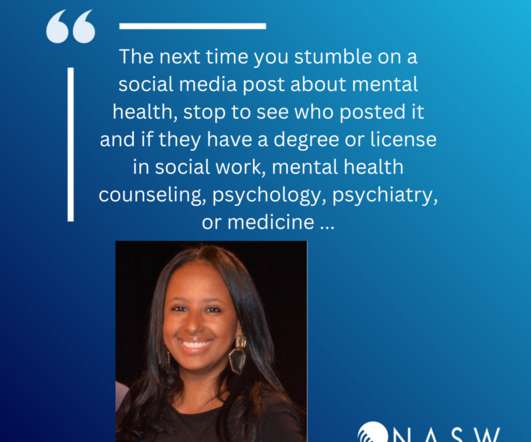Member Voices: Be Wary of Mental Health ‘Experts’ on Social Media
Social Work Blog
JANUARY 19, 2023
Monteiro, LCSW The past two years were filled with fear and uncertainty, exacerbating a mental health crisis with an increase in anxiety, depression, suicide rates, and substance abuse. I have a master’s degree in Social Work and am a Licensed Certified Social Worker (LCSW).


















Let's personalize your content